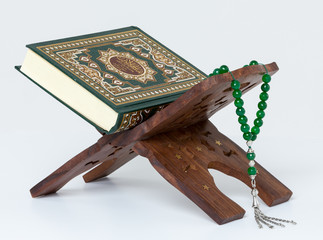Tajweed meaning is to know the rules and rulings laid down by scholars of reading for intonation, in an era later than the era of prophecy, when melody spread, and the era of composition began in all other sciences, and examples of that are many. . Examples of this in the present era are: the people of Sudan pronounce the qaf as a genius, the people of Cairo, Yemen and Syria pronounce it a hamza, the people of Kuwait pronounce the jim yaa, and the people of Cairo pronounce it like the colloquial qaf, and some people pronounce the taa as a signifier, the signifier for the taa, the dhad as a signifier, the thaa sina, and the thaal as a zayah. , as well as different words and synonymous meanings, and so on.
That is, such as: the meaning of Tajweed with introduction to Basmalah and Isti’adha, the correct pronoiciation for Noon and Meem shaddah & letters of lips, rules of Noon sakinah & Tanween (Izhaar, Idghaam, Iqlaab, and Ikhfaa), Laam Sakinah Rules, Laam Sakinah Rules, Rules Of Idghamm and more…..
Reason for making Tajweed rules
The Companions used to pronounce the Qur’an glorified without the need for recitation, and it was transmitted from them by the followers and after them until it reached us. The vernacular spread, and dominated the classical, and the first to write a poem in the science of Tajweed: Abu Muzahim Al-Khaqani, who died in 325 AH. He wrote Al-Khalil Ibn Ahmad in titles of letters, exits, adjectives, and phonology, and among those who wrote in readings, including Tajweed: Abu Obaid Al-Qasim bin Salam, who died in the year 224 AH.
And the continuation of the correct recitation with the change that occurred in the Arabic tongue, needs controls in order for the pronunciation to remain correct; The well-known Tajweed rules were codified in the era when the sciences began to be codified, such as the rules of the Arabic language, rhetoric, and all other knowledge and arts. Scholars of every art set out to set rules and regulations that preserve it. The imams of reading took care of setting rules that preserve the practical performance of the Holy Qur’an, as it was reported from the Messenger of God, peace and blessings be upon him. Without distortion of the method of recitation that accompanies his words, and the reader of the Qur’an is the most eloquent of those who pronounce the letters, and preserve the language because of these rules and controls.
The application of these rules must include: sporting the tongue, and a lot of training in the beginning until the tongue is tamed in the correctness of performance, and then it has a good temperament and elegance later on without spending energy on applying the rule.
Reciting the Qur’an in this capacity helps to understand the meaning and contemplate it, and motivates to work with what is in the Qur’an to establish its limits, and implement its lawful and forbidden.
Tajweed’s rules
Knowing the rules and rulings of the Tajweed is an obligation of sufficiency on the ummah. If some Muslims perform it, the sin is waived for the rest, unless the practical Tajweed comes only through scientific recitation, then it takes its ruling. The jurists, the imams, the teachers of the Qur’an, the interpretation, and the legal sciences are like all other beneficial sciences. Knowing the rules of intonation is an obligation of sufficiency, and working with it is an individual obligation in the sentence.
And the common Muslims should make the effort to learn the correct pronunciation of the Qur’an through verbalization and indoctrination, and while trying to teach, the reader if he stumbles in his reading is an act of worship in any case, and he is not exempt from seeking knowledge.
Reciting the Qur’an is worship, and worship is action, in which two pillars must be present for its acceptance as prescribed by Sharia:
- The first pillar: is sincerity
- The second pillar: It is the follow-up and approval of what the Messenger of God, may God’s prayers and peace be upon him, came with, and this approval is a reading according to the manner in which the revelation was revealed, which was transmitted by the imams of the reading and reached us through tawatur from the Messenger of God, may God’s prayers and peace be upon him, and there is no way to know this method except by knowing it. The controls, which are the rules of intonation that were developed in an era later to the era of prophecy. What is required is: the correct reading of the Qur’an; Whether it is possible without knowing the rules of intonation, or stop them.

